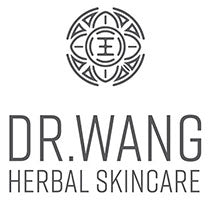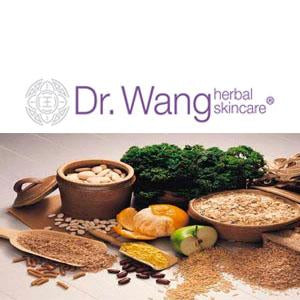Understanding Psoriasis From a Traditional Chinese Medicine Perspective
Psoriasis is a chronic inflammatory skin condition that affects more than 7 million Americans. This skin condition is seen throughout the world and affects people of all races and ethnicities.
Conventional medicine and modern scientific understanding of this disease attribute much of the underlying mechanisms to dysregulation of the immune system. Hence, modern treatment includes topical steroids, and various biologics that target TNF-a, or IL-17. These newer treatment modalities are very successful in suppressing inflammation and achieve near-complete clearance of skin disease.
Traditional Chinese medicine (TCM), has also been used to treat psoriasis and other skin conditions. It uses acupuncture, massage, and herbal skincare, and it has a very long tradition spanning over thousands of years of clinical experience. In the recent decade, TCM has become more popular in the US, Australia, and countries in Europe. Many patients who gravitate towards natural options are seeking care through TCM.

What are the general concepts in Traditional Chinese Medicine? How does TCM health care providers think about psoriasis? What do they use? Lastly, what do patients seeking TCM need to know?
Traditional Chinese Medicine’s general principles:
TCM emphasizes that a dynamic balance of the Yin and Yang is necessary to maintain good health. Furthermore, there needs to be harmony with the five elements of the body – Wood, Fire, Earth, Metal, and Water. In addition, there needs to be vigilant monitoring of the adequate and free flow of Qi and Blood within the body. Striving to optimize these three aspects of inner health is paramount in protecting the body from disturbances by six common outer forces, namely Wind, Cold, Dampness, Dryness, Heat, and Fire.
Classification of psoriasis according to Traditional Chinese Medicine
Psoriasis is commonly classified into three main syndromes namely Blood Heat, Blood Dryness and Blood Stasis.
- Blood Heat Syndrome. Patients in this category usually present with an acute eruption of numerous bright, active, red lesions that can spread quickly and have an irregular and guttate pattern. Patients often complain of intense itch. Looking at the Western conventional classification, Blood Heat Syndrome most closely resembles that of guttate psoriasis which can occur after a bacterial infection.
- Blood Dryness Syndrome. Patients in this category present with more of chronic diseases with large and coalescent plaques. Skin lesions tend to be thicker and hard to peel off. In addition, the skin is dry and cracked. In terms of classifications by conventional medicine guideline, Blood Dryness Syndrome resembles that of psoriasis vulgaris, the most common type of psoriasis.
- Blood Stasis Syndrome. Patients in this category have a chronic condition with clearance and relapse of skin lesions. The lesions are asymmetrically distributed throughout the body. Psoriatic plaques can vary in size and thickness, and most lesions have dull red colors. Blood Stasis Syndrome does not have a clear counterpart in western classification.
What are Traditional Chinese Medicine treatments for psoriasis?
TCM employs acupuncture, massage (tui na), qigong, and herbal medicine, with the latter being the most important treatment remedy. Most common herbs are focused to clear internal Heat, remove Dampness, activate Blood to eliminate blood stasis and strengthen any deficiencies. The overall goal is to restore the balance within the body to expedite the clearance of psoriasis.
These concepts may be mysterious and difficult to comprehend. However, recent studies on these herbs have shown that they have anti-inflammatory mechanisms, such as inhibiting IL-12, IFN-gamma, TNF-Alpha. It is hypothesized that these underlying biochemical properties are the reasons why these herbs are effective in treating psoriasis.
What should you be aware of Traditional Chinese Medicine?
TCM has been shown to be effective in patients who are under the care of trained TCM physicians, but more research is needed to understand the efficacy of these treatments. More importantly, their potential side effects associated with herbs. Furthermore, diets and herbal remedies can also interact with Western medicines taken for other health conditions.
Please let us know if you ever tried traditional Chinese Medicine for psoriasis or other skin conditions? If so, did it work? Please share this post with anyone who may be interested in TCM. Also, sign-up for e-news to receive information on ways to manage psoriasis and other skin conditions.





Dear Colleague,
Greetings from Aesthetic practices 2019!
We cordially invite you to be a speaker/Delegate at the upcoming CME and CPD accredited event, 2nd International Meeting on Aesthetic Medicine on June 17-18, 2019 Osaka, Japan. We would be delighted to have you at this conference to interact with world class researchers, scientist, students from across the world, we would love to hear your opinion about Aesthetic Medicine(dermatology) research.
Hy! My name is Simran. I read your post thoroughly. I am also a blogger and I really really like your post. It’s a great niche. You know what it is very beneficial for all psoriasis patient. Thanks 4 sharing this post. Carry on, Best of luck.Have a nice future.
Hello, I am a practitioner looking for a skin care line for my practice, at the moment looking for a cream for blood stasis psoriasis patient, do you have products for sale?